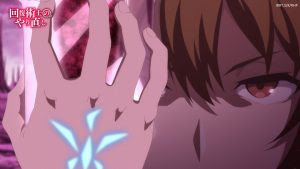This year in the Chinese calendar marks a new year of the Rat, something Fruits Basket’s Yuki Sohma would perhaps feel quietly happy about. The myth in Chinese astrology goes that being in the year of your own zodiac animal could bring bad luck for the whole of that year. But old Sohma is a laid back kind of soul and not one to kow-tow to superstition, and so we can see him thinking of 2020 as his year.
Of course, in a way, he’s absolutely right. The remake of the Fruits Basket anime returns this spring for its second season, and as ever it’s proved to be a celebration of the intercultural power of zodiac fortune telling, while cautioning not to take such things too seriously. Tohru Honda finds a beloved family in the Sohmas, a family which represents the animals of the zodiac, while being cursed to transform into their furry (or sometimes scaly) soul emblem whenever they are embraced by the opposite sex. As romantic as it might be for Tohru to meet the ostracised zodiac cat in Kyo Sohma, it is his nature to arch his back and hiss at strangers who come too close. And as much as she might long to comfort Yuki’s troubled soul, she will find herself cuddling with a rat if she puts an arm wrong. Let mangaka Natsuki Takaya’s message be known—trying to force connections based on somebody’s star sign will have embarrassing consequences.
But who can really blame Tohru for finding the Sohma family so captivating? Each of their stories are tied with the Taoist faith which, in part, formed the Chinese zodiac; a faith in the stars, sun and space being the keys to a person’s future. To a person like Tohru, who has suffered loss and feels like she doesn’t belong, finding the zodiac’s representatives on Earth must bring her hope that destiny exists to make everything right in the end.
In the zodiac’s origin story The Great Race, there is a message of even the outcast ones retaining their ties to a spirit of oneness. When all the animals were invited to a farewell feast for the Buddha before he entered Nirvana, the story goes that the first twelve animals to arrive would forever be honoured guests at his table. So the rat came first by taking a ride on the back of the ox, and Cat would have been in good stead as well if Rat hadn’t tricked him into slipping from Ox’s back (hence why Kyo is always in competition with Yuki). Even though not every animal made the twelve-year calendar or ‘junishi’, each one still has spiritual significance in Taoism and Daoism, and though Kyo takes the rat’s trick oh so seriously, he is still welcome as one of the Sohma family.
Because the Sohma ties are so strong, pulling them back to their ancestral estate to celebrate the new year, Tohru’s first New Year’s Eve as their friend is almost a solitary one. It’s a good thing she has a mortal friend or two to convince the boys to turn tails. When they arrive back home, she’s just about to give in to the sadness of having no family to celebrate with. Fruits Basket may well be warning the reader or viewer away from pinning all our hopes to a myth, but this moment in the episode ‘A Solitary New Year’ is one that encourages us to keep some faith in our stars. If flesh and blood was all we had, it could be a lonely and hopeless existence indeed. Tohru has to hope that there is some deeper meaning to keep herself going when the grief of losing her mother starts to weigh heavy. Some would believe she was foolish to cling to something so intangible. But it is her faith in fate which draws her into the Sohma circle, and her life purpose; healing three souls who need her affection as much as she needs theirs.




